
0
+
Google Reviews

0
+
4.8 (2093 Ratings)
Automation with Ansible I (DO407) is designed for system administrators who are intending to use Ansible for automation, configuration, and management. Learn how to install and configure Ansible, create and run playbooks to configure systems, and learn to manage inventories.
Automation with Ansible II: Ansible Tower (DO409) is designed for IT professionals who use Ansible by Red Hat® and need to centrally manage their Ansible projects in a way that scales to large teams and complex enterprise installations using Ansible Tower by Red Hat.
This Ansible training is based on Ansible Tower 3, Ansible 2, and Red Hat Enterprise Linux® 7


Curriculum Designed by Experts
Course introduction
Introduce and review the course.
Introduce and review the course.
Explain what Ansible Tower is and demonstrate a basic ability to navigate and use its web user interface.
Ansible is a powerful automation tool used for configuration management, application deployment, and orchestration. Learning Ansible equips you with the skills needed to automate repetitive tasks, streamline workflows, and increase efficiency in IT operations.
By automating manual tasks, Ansible helps organizations save time and reduce operational costs. With Ansible, you can deploy and manage infrastructure, applications, and services more quickly and consistently, leading to faster time-to-market and improved resource utilization.
Ansible enables you to manage infrastructure and applications at scale, whether you're working with a handful of servers or a large, distributed environment. With Ansible's declarative language and idempotent nature, you can ensure consistent configurations and deployments across your entire infrastructure
Ansible promotes the principles of Infrastructure as Code (IaC), allowing you to define and manage infrastructure using code. With Ansible playbooks, you can describe your desired state infrastructure, version control your configurations, and automate provisioning and configuration tasks.
Ansible boasts a large and active community of users, contributors, and experts who regularly share tips, best practices, and troubleshooting advice. By enrolling in an Ansible course, you gain access to valuable resources, forums, and support channels where you can learn from others and stay up-to-date with the latest developments in Ansible.
Ansible skills are in high demand in the job market, with many organizations seeking professionals who can effectively leverage automation to improve their IT operations. By completing an Ansible course and obtaining relevant certifications, you can enhance your career prospects and unlock new opportunities in fields such as DevOps, SysAdmin, and Cloud Engineering.
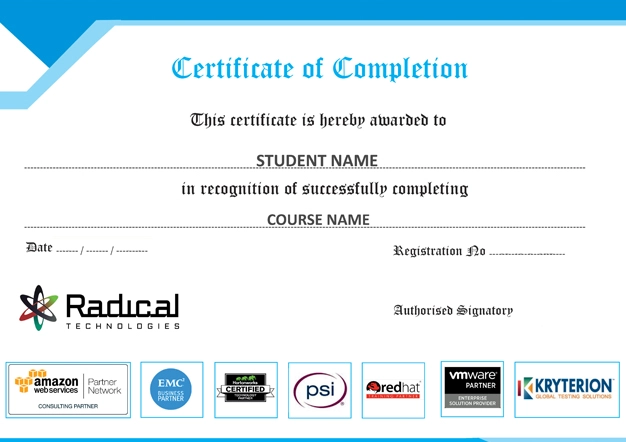


At Radical Technologies, we are committed to your success beyond the classroom. Our 100% Job Assistance program ensures that you are not only equipped with industry-relevant skills but also guided through the job placement process. With personalized resume building, interview preparation, and access to our extensive network of hiring partners, we help you take the next step confidently into your IT career. Join us and let your journey to a successful future begin with the right support.
At Radical Technologies, we ensure you’re ready to shine in any interview. Our comprehensive Interview Preparation program includes mock interviews, expert feedback, and tailored coaching sessions to build your confidence. Learn how to effectively communicate your skills, handle technical questions, and make a lasting impression on potential employers. With our guidance, you’ll walk into your interviews prepared and poised for success.
At Radical Technologies, we believe that a strong professional profile is key to standing out in the competitive IT industry. Our Profile Building services are designed to highlight your unique skills and experiences, crafting a resume and LinkedIn profile that resonate with employers. From tailored advice on showcasing your strengths to tips on optimizing your online presence, we provide the tools you need to make a lasting impression. Let us help you build a profile that opens doors to your dream career.

Infrastructure Provisioning
Implementing automated infrastructure provisioning and configuration management using Ansible. This may include setting up servers, networking devices, and other infrastructure components using playbooks and roles.

Applications Deployment
Automating the deployment and orchestration of applications across development, testing, and production environments. This could involve deploying web servers, databases. middleware, and other application components using Ansible

Continuous Integration
Integrating Ansible into CI/CD pipelines to automate software. build, test, and deployment processes. This may include automating the creation of build artifacts, running tests, and deploying applications to various environments.

The Ansible Tower Training at Radical Technologies in Bangalore exceeded my expectations. The trainers are highly knowledgeable and make complex concepts easy to understand. I highly recommend this Ansible Training In Bangalore.
The Red Hat Ansible Training at Radical Technologies is top-tier. The trainers are experienced professionals, and the course content is aligned with the latest industry standards, making it the best Ansible Training In Bangalore.
Radical Technologies’ Ansible Certification Training in Bangalore was excellent. The trainers were very supportive and provided detailed guidance that helped me clear the certification with ease.
I was thoroughly impressed with the Best Ansible Training at Radical Technologies. The course was engaging and covered everything from Ansible basics to advanced automation techniques.
Radical Technologies in Bangalore provides the best Ansible Tower Training. The trainer was thorough, and the course was tailored to industry needs. I highly recommend it for anyone looking to get certified in Ansible.
The Ansible Training And Certification program at Radical Technologies in Bangalore helped me elevate my skills to the next level. The hands-on labs were particularly helpful in understanding Ansible’s capabilities.
If you're looking for a great place for Ansible Red Hat Training in Bangalore, look no further than Radical Technologies. The instructors are fantastic, and the training material is up-to-date with the latest industry practices.
The Ansible Redhat Certification at Radical Technologies is one of the most valuable courses I've taken. The course content was comprehensive, and the instructor’s guidance helped me excel in Ansible.
I completed the Ansible Automation Certification at Radical Technologies and can confidently say that the course is top-quality. The practical labs and real-world examples helped me prepare for the certification exam effectively.
Radical Technologies’ Ansible Training Courses are the best in Bangalore. The instructors are industry experts, and the hands-on approach helped me get practical exposure to Ansible automation.
The Redhat Ansible Course at Radical Technologies provided in-depth knowledge and hands-on experience. The trainer was highly experienced and helped us understand complex topics with ease.
Radical Technologies offers the best Ansible Automation Platform Training in Bangalore. The training was detailed and covered everything I needed to pass the Ansible Certification.
The Redhat Ansible Certification course at Radical Technologies was well worth it. The detailed and structured approach made learning seamless, and the trainers were always available to clear doubts.
I completed the Red Hat Ansible Training at Radical Technologies in Bangalore, and it was a great experience. The focus on hands-on learning and practical labs helped me master Ansible concepts easily.
Radical Technologies’ Ansible Training Course is a must for anyone serious about learning Ansible. The trainers are highly experienced, and the curriculum is well-balanced between theory and practicals.
The Red Hat Ansible Certification training at Radical Technologies was top-notch. The training content was well-organized, and the instructors provided invaluable insights into real-world Ansible use cases.
If you’re looking for the Best Ansible Courses in Bangalore, Radical Technologies is the place to be. The course was comprehensive, covering every aspect of Ansible automation, and prepared me well for the Ansible Certification Training.
The Ansible Training I received at Radical Technologies was one of the most practical and useful courses I have ever taken. It not only helped me understand Ansible but also gave me the confidence to apply it in real projects.
The Ansible Automation Online Training provided by Radical Technologies was extremely flexible and informative. The online classes were well-organized, and the support from the trainers was outstanding.
I recently completed the Ansible Automation Training at Radical Technologies. The instructor's real-world experience and in-depth knowledge were invaluable. The training is perfect for anyone looking to specialize in Ansible automation.
Radical Technologies in Bangalore offers the best Red Hat Ansible Tower Training. The trainers are experts in the field, and the content was perfectly structured for both beginners and professionals.
I took the Ansible Certification Course at Radical Technologies, and I was impressed by the comprehensive curriculum. The hands-on labs helped me understand Ansible in-depth and boosted my confidence for the certification exam.
I can confidently say that Radical Technologies provides the Best Ansible Training in Bangalore. The course covered everything from basics to advanced Ansible automation, preparing me well for the Ansible Certification.
Enrolling in the Best Ansible Course at Radical Technologies was one of the best decisions I made. The practical approach helped me gain hands-on experience, and the instructors were very supportive throughout the course.
Enrolling in the Best Ansible Course at Radical Technologies was one of the best decisions I made. The practical approach helped me gain hands-on experience, and the instructors were very supportive throughout the course.












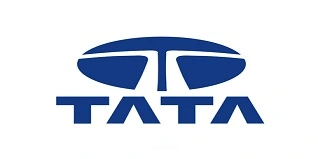

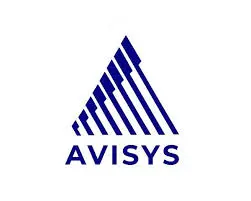





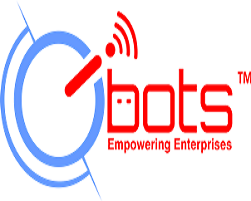
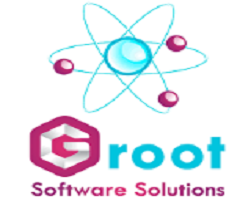

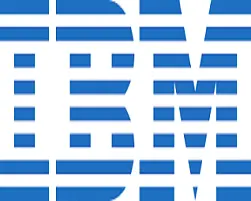
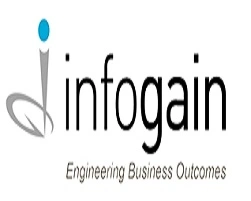
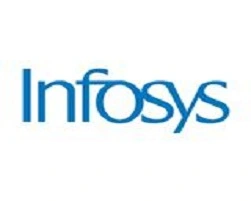
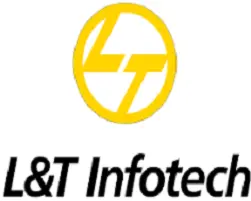
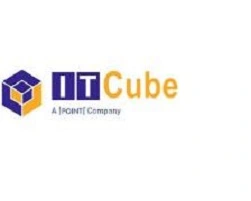
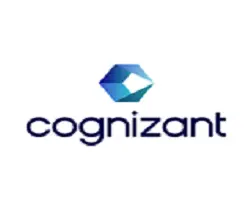

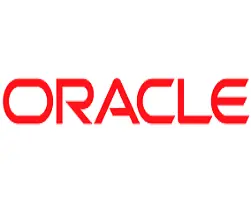

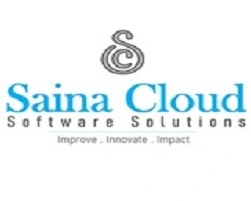




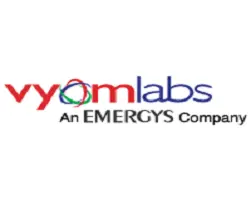


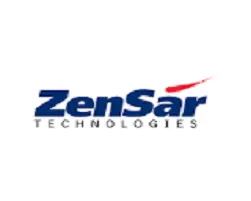
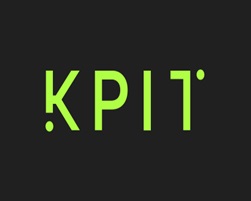
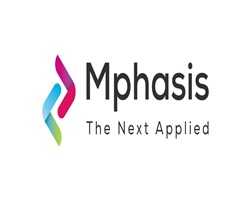
Ansible is an open-source automation platform provided by Red Hat that allows IT teams to automate tasks such as configuration management, application deployment, orchestration, and cloud provisioning. It uses simple, human-readable YAML scripts known as playbooks.
Ansible playbooks are YAML files that define a series of tasks to be executed on remote systems. Playbooks are used to automate processes such as software installation, configuration updates, or executing scripts.
Ansible uses a push-based model and is agentless, meaning it doesn’t require software to be installed on the managed nodes. It uses SSH for communication, whereas tools like Puppet and Chef require agents and use a pull-based architecture.
Ansible roles allow users to group tasks, variables, files, templates, and handlers in a structured manner. This helps in reusing and organizing content efficiently across multiple playbooks, making playbook management simpler and more scalable.
Ansible inventory files list the hosts and groups of hosts where automation tasks will be executed. The inventory can be static, defined in a file, or dynamic, fetched from cloud platforms, databases, or scripts that generate the inventory in real time.
Ansible Galaxy is a community platform for sharing Ansible roles. It provides access to thousands of pre-written roles, enabling users to quickly adopt reusable, shared automation content.
Ansible modules are reusable scripts used to perform specific tasks, such as installing software, managing users, or configuring network devices. They are the building blocks of Ansible playbooks, simplifying automation.
A well-organized Ansible project typically follows a directory structure that includes directories for playbooks, roles, inventories, group_vars, and host_vars. Using roles and separating configuration variables from playbooks ensures scalability and maintainability.
Ansible integrates with cloud platforms like AWS, Microsoft Azure, and Google Cloud. It can automate cloud resource management, instance provisioning, and configuration, enabling users to manage both on-premises and cloud environments with a single tool.
Yes, Ansible can automate networking tasks. It has support for numerous networking devices from vendors like Cisco, Juniper, and Arista. Ansible can configure devices, manage VLANs, and apply consistent configurations across large-scale networks.
Handlers in Ansible are similar to tasks but are only triggered when notified by other tasks. They are used for operations that should be performed after changes, such as restarting a service after updating a configuration file.
Ansible allows users to set error-handling mechanisms such as retries, ignore_errors, or conditional checks. Handlers can also be defined to execute rollback or recovery actions when a failure occurs during playbook execution.
Tags in Ansible are used to run specific parts of a playbook. They allow you to execute only certain tasks instead of the entire playbook, making task management and execution more efficient, especially in large environments.
Ansible facts are system properties gathered automatically by Ansible when it connects to a host. These facts include details such as OS version, network interfaces, and available memory. They can be used in playbooks to make tasks more dynamic.
Ansible Vault is a feature that allows users to encrypt sensitive data such as passwords, keys, or configuration files. It helps ensure security by requiring encryption and decryption keys to access sensitive information during playbook execution.
Basavanagudi | HSR Layout | Sadashivanagar | Jayanagar | Koramangala | Whitefield | Banashankari | Marathahalli | BTM Layout | Electronic City | Rajajinagar | Domlur | Indiranagar | Malleshwaram | Yelahanka | Cooke Town | Nagarbhavi | Bannerghatta Road | Chandapura | Dasarahalli | Devanahalli | Anandnagar | Avenue Road | Byatarayanapura
I had an amazing experience with this service. The team was incredibly supportive and attentive to my needs. The quality of the work exceeded my expectations. I would highly recommend this to anyone looking for reliable and professional service."
I had an amazing experience with this service. The team was incredibly supportive and attentive to my needs. The quality of the work exceeded my expectations. I would highly recommend this to anyone looking for reliable and professional service."
I had an amazing experience with this service. The team was incredibly supportive and attentive to my needs. The quality of the work exceeded my expectations. I would highly recommend this to anyone looking for reliable and professional service."
I had an amazing experience with this service. The team was incredibly supportive and attentive to my needs. The quality of the work exceeded my expectations. I would highly recommend this to anyone looking for reliable and professional service."
I had an amazing experience with this service. The team was incredibly supportive and attentive to my needs. The quality of the work exceeded my expectations. I would highly recommend this to anyone looking for reliable and professional service."
The Red Hat Ansible Automation Platform has become a pivotal tool for managing and automating IT infrastructure. As organizations increasingly adopt automation to streamline operations, Red Hat Certified Specialist in Ansible Automation stands out as a valuable credential for IT professionals. This certification demonstrates your expertise in Ansible to automate tasks across diverse systems, from network configurations to cloud deployments.
Ansible is an open-source automation tool that simplifies tasks such as provisioning, configuration management, and application deployment. Unlike other automation tools, Ansible uses a push-based model, allowing users to control nodes without requiring agents on them. By using simple YAML playbooks, Ansible reduces complexity, making it an ideal choice for both small and large-scale IT environments.
The Red Hat Ansible Certification focuses on essential skills that allow candidates to demonstrate their proficiency with Ansible. Some of the key learning objectives include:
The Red Hat Ansible Certification is ideal for professionals in roles such as:
After achieving the Red Hat Ansible Certification, professionals can explore advanced roles in automation, or pursue further certifications such as:
Red Hat Ansible is a powerful automation platform with a wide range of applications across different industries and IT environments. Its ability to automate tasks simplifies complex workflows, making it an essential tool for system administrators, DevOps engineers, and IT operations teams. Here are some of the most prominent applications of Red Hat Ansible:
1. Configuration Management
Ansible excels in configuration management, allowing IT teams to define the desired state of their infrastructure and consistently enforce it across multiple systems. Through playbooks, which are written in a simple YAML format, administrators can:
This eliminates manual configurations, reducing human error, and improves system reliability.
2. Application Deployment
Ansible simplifies application deployment across environments, ensuring that deployments are automated, repeatable, and consistent. By using playbooks and roles, Ansible can:
This is particularly beneficial for teams adopting CI/CD pipelines to streamline application releases.
3. Provisioning Infrastructure
Ansible integrates with various cloud providers, virtualization platforms, and container technologies to automate the provisioning of infrastructure. It supports platforms like:
By using Ansible to automate the setup of servers, networks, and storage, IT teams can ensure rapid and consistent infrastructure provisioning across multiple platforms.
4. Security Automation
Security compliance and management are critical in any IT environment. Ansible helps automate security policies and compliance checks by:
With Ansible, organizations can reduce the risk of security breaches and maintain compliance with industry standards like PCI DSS or HIPAA.
5. Network Automation
Managing network devices, such as switches, routers, and firewalls, manually can be complex and time-consuming. Ansible allows for network automation, helping IT teams:
This automation improves operational efficiency, reduces downtime, and ensures network consistency.
6. Cloud Automation
Ansible is highly compatible with public and private cloud platforms, making it ideal for cloud automation tasks such as:
By automating cloud operations, Ansible helps IT teams manage cloud-native applications, ensuring better resource utilization and cost control.
7. Orchestration of IT Operations
Ansible enables orchestration across IT processes by automating complex workflows involving multiple systems and platforms. It coordinates tasks across infrastructure components such as databases, storage systems, and applications by:
This results in more agile IT operations, where deployments and changes are executed faster and with greater reliability.
8. Disaster Recovery Automation
Ansible plays a crucial role in disaster recovery by automating the backup and recovery processes. It helps ensure that:
By automating disaster recovery, Ansible helps minimize downtime and data loss during emergencies.
9. Compliance and Auditing
Ansible makes it easy to enforce compliance across IT environments by automating audits and checks. You can create playbooks to:
This helps organizations meet regulatory compliance requirements with minimal manual intervention.
Radical Technologies is renowned as the leading institute in Bangalore for comprehensive Red Hat Ansible Tower Training and certification programs. We are committed to delivering industry-focused, practical, and hands-on Ansible Training that prepares professionals to meet the growing demand for automation in IT infrastructures. Whether you are a beginner or an experienced professional, our courses are designed to equip you with the skills needed to excel in the world of automation.
Our Ansible Tower Training and Ansible Certification Courses are recognized as some of the Best Ansible Courses available, offering detailed insight into automation platforms and enabling you to efficiently manage multi-tiered deployments. With a focus on real-world applications, Radical Technologies provides both Ansible Automation Training and Ansible Automation Online Training, allowing flexibility for working professionals.
At Radical Technologies, we ensure that students receive the Best Ansible Training through our meticulously crafted Ansible Training Courses. Our Red Hat Ansible Certification and Ansible Training And Certification programs are designed to provide in-depth knowledge and hands-on experience, ensuring that participants gain the expertise required to pass their certification exams with confidence.
As the top provider of Ansible Training In Bangalore, Radical Technologies offers a wide range of training options, from Ansible Tower Courses to Ansible Automation Certification. Our expert trainers, with vast industry experience, lead students through advanced concepts in Red Hat Ansible Training, preparing them for real-world challenges in automation.
We take pride in delivering the Best Ansible Course with state-of-the-art facilities and flexible learning options, including weekend batches and Ansible Automation Online Training for those who prefer remote learning. Our Redhat Ansible Course and Ansible Automation Platform Training are structured to meet the needs of IT professionals seeking to specialize in Ansible automation.
For anyone looking to pursue Ansible Redhat Certification or enhance their skills in automation, Radical Technologies in Bangalore is the go-to destination. With our cutting-edge training methodologies, we ensure that every participant emerges as a skilled professional, ready to implement advanced automation solutions in their organization.
Join us at Radical Technologies for the Best Ansible Training experience in Bangalore and take the first step toward mastering Ansible automation.


(Our Team will call you to discuss the Fees)

(Our Team will call you to discuss the Fees)
